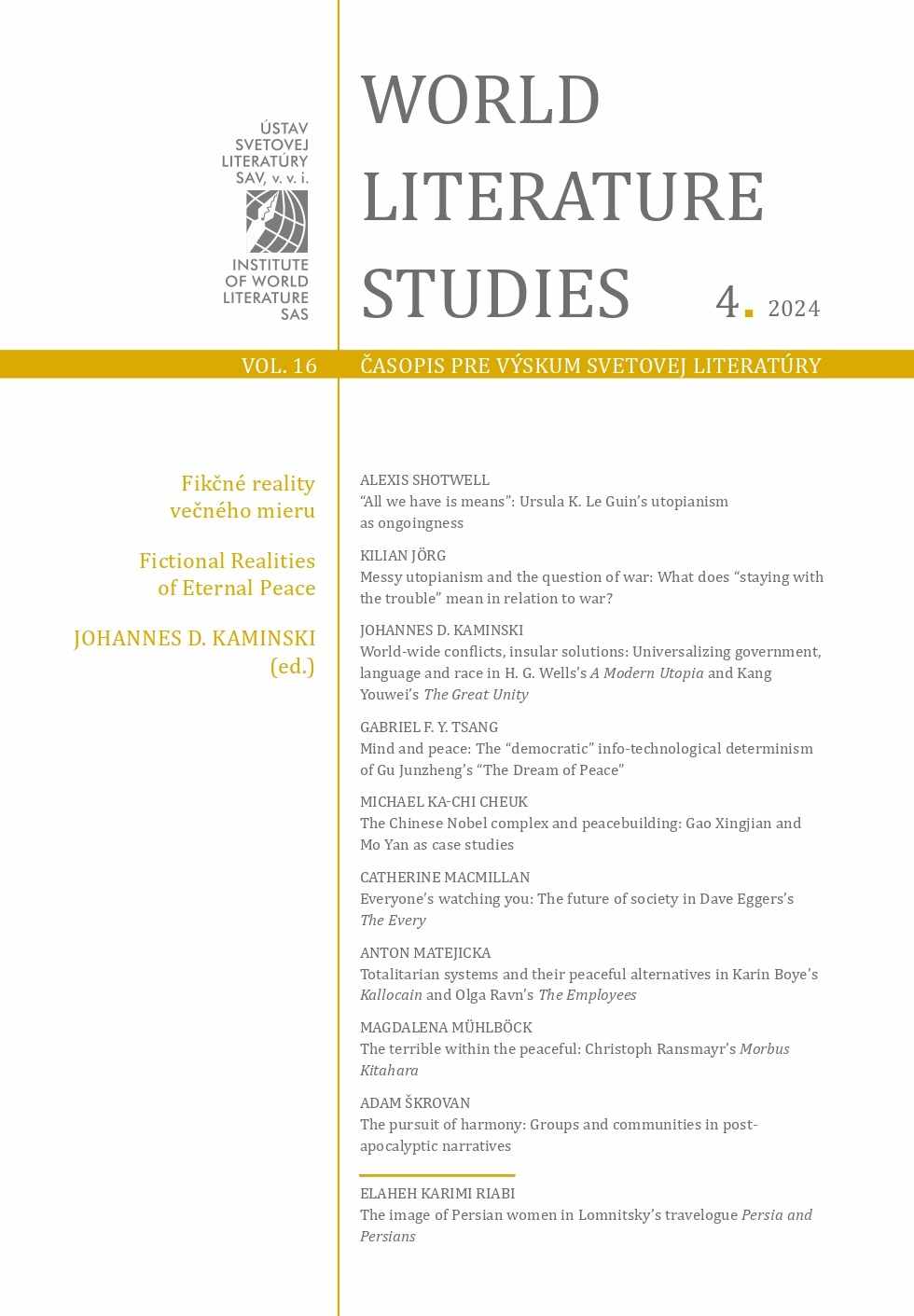Mind and peace: The “democratic” info-technological determinism of Gu Junzheng’s “The Dream of Peace”
Mind and peace: The “democratic” info-technological determinism of Gu Junzheng’s “The Dream of Peace”
Author(s): Gabriel F. Y. TsangSubject(s): Language and Literature Studies, Cultural history, Political Theory, Economic history, Other Language Literature, Comparative politics, ICT Information and Communications Technologies
Published by: SAV - Slovenská akadémia vied - Ústav svetovej literatúry
Keywords: Gu Junzheng; “The Dream of Peace”; Chinese science fiction; Democracy; Information technology; Peace
Summary/Abstract: Gu Junzheng (1902–1980) published “The Dream of Peace” in 1939, adapted from Edmond Hamilton’s short story “The Conqueror’s Voice”. Junzheng’s tale is highly scientific and includes many technical terms and ideas. It corresponds to the May-Fourth legacy of emphasizing scientific precision for strengthening the nation, but trickily excludes China in the information warfare between the US and “Eastern-most Nation”. Taking “The Dream of Peace” as a both national and personal allegory that reflects the ideas of democracy, minzhu, and communism in relation to represented info-technological determinism, one can discover that Gu’s acceptance of techno-hierarchy, anti-concession, obscurantism, patriotic exclusionism, and absolute public control originated in his specific wish for peace rather than in democratic thought.
Journal: World Literature Studies
- Issue Year: 16/2024
- Issue No: 4
- Page Range: 47-60
- Page Count: 14
- Language: English

